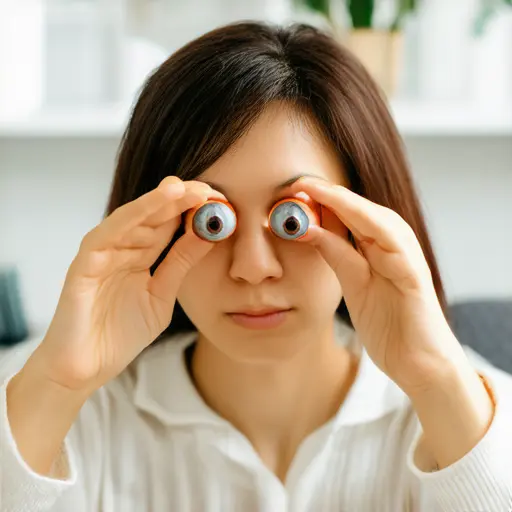A program so powerful, it’s designed to improve perfect eye health and give anyone who uses it crystal clear 20/20 vision in a matter of weeks.
Ways to Improve Night Vision: Expert-Backed Strategies

Struggling to See at Night? Here’s How to Improve Your Night Vision
Ever squinted through a dark parking lot or felt blinded by oncoming headlights? You're not alone. Poor night vision affects millions—whether you're noticing age-related changes or just occasional nighttime blurriness. The good news? There are practical ways to see better after sunset.
Why Your Night Vision Matters More Than You Think
This isn't just about spotting raccoons in your backyard. Clear night vision keeps you safe when driving home late, helps you navigate your house without stubbing toes, and maintains your independence as you age. When your eyes struggle in low light, everyday activities become harder—and riskier.
The Frustrating Reality of Poor Night Vision
If you nod along to any of these, your eyes might need some nighttime support:
- Headlight hell: Oncoming traffic feels like staring into spotlights
- Slow adjustment: Walking into a dark movie theater? Good luck seeing your seat for 10 minutes
- The "is that a shadow or a step?" dilemma: Low contrast makes everything blend together
How Your Eyes Actually See in the Dark
Let's geek out on eye science for a minute—understanding this helps explain why certain fixes work.
Your Built-In Night Vision System
Special retinal cells called rods act like biological night-vision goggles. While color-detecting cones clock out at dusk, rods work overtime in dim light. That 20-30 minute adjustment period when lights go out? That's your rods revving up (slower as we age, unfortunately).
What's Sabotaging Your Night Vision?
Several factors can throw rods off their game:
The Natural Ultra Absorbable Dropper That Supports Strong Vision

Inside every drop of "EyeFortin" you'll find: A perfectly dosed proprietary blend of selected plants and minerals, carefully mixed to complement one another into a powerful vision supporting formula.
Watch free special video- Birthday candles: After 40, rod cells naturally decline
- Diet gaps: Skimping on vitamin A is like starving your night vision team
- Health hits: Conditions like cataracts scatter light like fogged-up headlights
Natural Night Vision Boosters That Actually Work
While we can't turn back time, these science-backed strategies help maximize what you've got.
Eat Like Your Eyes Depend On It (Because They Do)
These nutrient powerhouses fuel rod cells:
- Orange allies: Carrots and sweet potatoes provide vitamin A for light-sensitive pigments
- Fish friends: Salmon's omega-3s keep eyes lubricated for clearer night vision
- Zinc heroes: Oysters and pumpkin seeds shuttle vitamin A where it's needed
Simple Eye Exercises for Dark Adaptation
Try these low-light workouts:
- The focus shuffle: Alternate between near/far objects in dim light (great during commercial breaks)
- Peripheral practice: Notice side-view details—rods dominate your outer vision
The Screen-Time Saboteur
Phones before bed = terrible for dark adaptation. That blue light's like shouting "WAKE UP!" to your rods. Try reading an actual book instead.
Everyday Habits for Better Night Vision
Small tweaks with big impact:
Be a Daylight Sunglasses Nazi
Overexposed retinas adapt slower at night. Think of shades as night vision prep.
Do THIS 7-Second Trick Tonight, Restore Perfect 20/20 Vision Tomorrow

VisiSoothe - Vision Breakthrough
Watch nowHydration = Clearer Night Vision
Dehydrated eyes get blurry fast. Pro tip: If your pee's pale, your eyes are happy.
Sleep: Your Eyes' Maintenance Window
During deep sleep, your eyes restock light-sensitive pigments. Skimping? You're shortchanging your rods.
When Lifestyle Changes Aren't Enough
Sometimes you need extra firepower:
Supplement Smarts
Consider these if your diet falls short:
- Lutein/zeaxanthin: Like sunscreen for your rods
- Bilberry: May boost retinal blood flow (popular with pilots)
Red Flags Worth a Doctor Visit
Sudden night vision drops? Could signal cataracts or retinal issues—don't wait.
Glasses That Actually Help at Night
Anti-glare coatings or amber lenses cut headlight glare dramatically.
Myth-Busting: Night Vision Edition
Let's separate fact from fiction:
The Carrot Question
Yes, vitamin A helps—but no, eating a bushel won't give you owl vision.
Eye Drop Deception
They'll moisten dry eyes but don't touch rod sensitivity. Don't waste money on "night vision" drops.
App Reality Check
Those "train your night vision" apps? Mostly placebo. Stick to proven methods.
Tech That Helps When Biology Fails
Modern solutions for stubborn night vision problems:
Gear Worth Considering
- Yellow-lens driving glasses: Takes the sting out of LED headlights
- Pocket night vision: Handy for camping or nighttime walks
Wrapping Up: Your Night Vision Action Plan
Start with these fundamentals:
- Feed your rods the right nutrients
- Protect eyes from light overload
- Don't ignore sudden changes—get checked
Remember: Better night vision often comes from consistent small steps. What's your biggest nighttime eyesight challenge? Share below—I read every comment!










